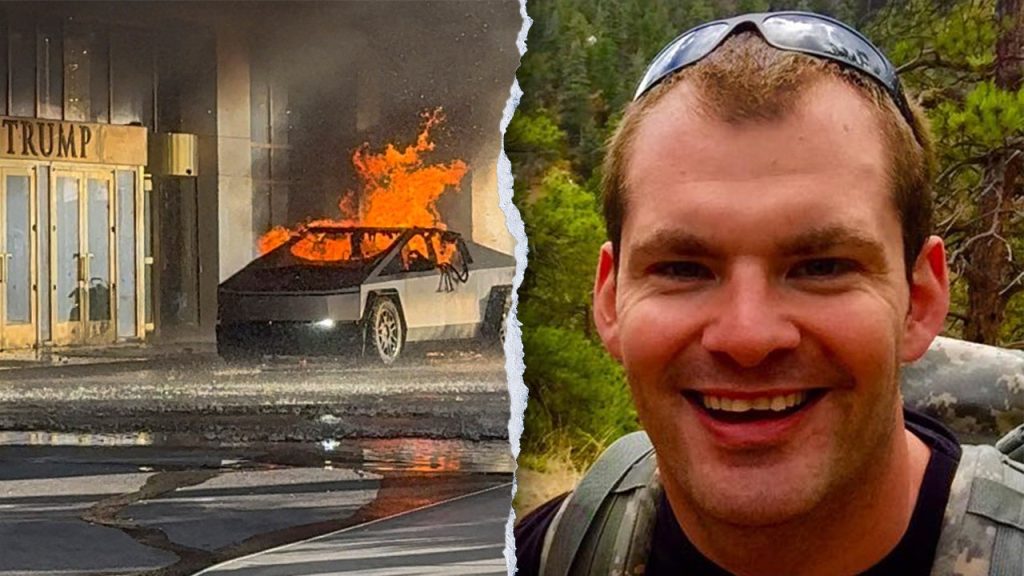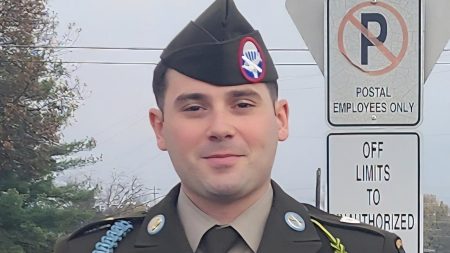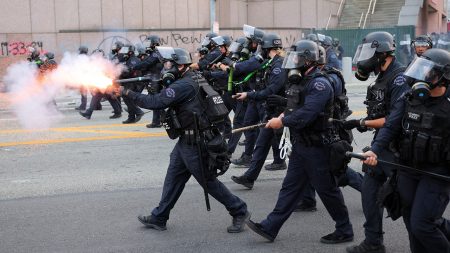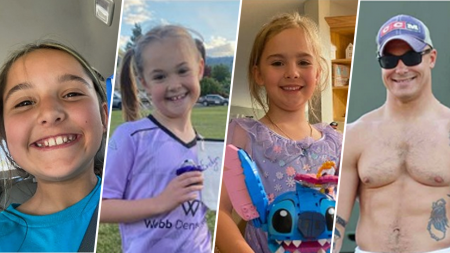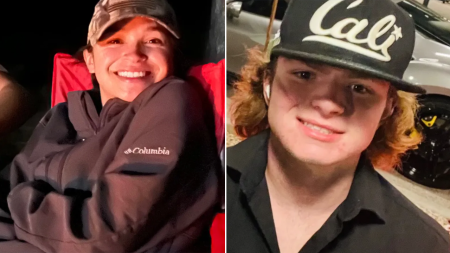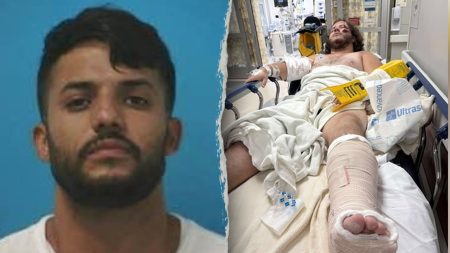The New Year’s Day explosion of a Tesla Cybertruck in front of the Trump International Hotel in Las Vegas, initially shrouded in mystery, has been revealed as a tragic act of suicide by a decorated Army Green Beret grappling with post-traumatic stress disorder (PTSD). Master Sgt. Matthew Livelsberger, 37, meticulously planned and executed the event, not as an act of terrorism, but as a desperate cry for help, a “wake-up call” to a nation he believed was teetering on the brink of collapse.
Livelsberger’s actions, while shocking and destructive, stemmed from a deep-seated internal struggle. The U.S. Army, in response to inquiries, confirmed that Livelsberger had utilized the Preservation of the Force and Family (POTFF) program, designed to support military personnel’s well-being. Crucially, at the time he was granted personal leave from his station in Germany, he displayed no outward signs of concerning behavior that would have raised red flags. This tragic incident underscores the insidious nature of PTSD, which can often remain hidden beneath the surface, even from trained observers. All relevant records regarding Livelsberger’s service and engagement with support programs were provided to the FBI, leading the investigation into the incident.
The Las Vegas Metropolitan Police Department (LVMPD), working in conjunction with the FBI, unearthed evidence pointing towards Livelsberger’s struggle with PTSD as the primary driver behind his actions. A “manifesto” recovered by investigators offered chilling insights into his mindset. He expressed a need to “cleanse” his mind of the trauma associated with combat experiences, the loss of fellow soldiers, and the burden of lives he had taken. He lamented that Americans only respond to spectacle and violence, suggesting that his dramatic act was a calculated attempt to grab the nation’s attention and deliver his message. This revelation transformed the narrative from a potential act of terrorism to a tragic consequence of untreated mental illness.
Sheriff Kevin McMahill, in a poignant press conference, highlighted the significance of Livelsberger’s case within the broader context of mental health challenges faced by first responders and military personnel. He underscored the importance of the LVMPD’s wellness bureau, established to address the psychological toll exacted by exposure to trauma and extreme situations. McMahill’s words served as a stark reminder of the invisible wounds carried by those who serve on the front lines, often masked by stoicism and a sense of duty. Livelsberger’s desperate act served as a tragic testament to the urgent need for increased awareness and support for mental health within these professions.
The details of Livelsberger’s final moments, as revealed by Assistant Sheriff Dori Koren, paint a grim picture of a man overwhelmed by his internal demons. The self-inflicted gunshot wound, specifically described as an intraoral injury, confirmed the suicidal nature of the act. This tragic end underscores the devastating consequences of untreated mental illness and highlights the vital importance of seeking help for those struggling with similar challenges. The explosive act itself, while attention-grabbing, was ultimately a secondary component to the deeply personal tragedy unfolding within Livelsberger.
In the aftermath of this incident, several critical questions emerge. How could a highly trained soldier, seemingly without outward signs of distress, reach such a desperate point? What more can be done to proactively identify and support those struggling with invisible wounds of war and trauma? Livelsberger’s story serves as a stark reminder of the limitations of current mental health support systems, even within organizations like the military. It compels a deeper examination of how we, as a society, address the mental well-being of those who serve and protect, ensuring that they receive the comprehensive care they need before reaching a point of no return. The explosion of the Tesla Cybertruck, while dramatic, was ultimately a tragic symptom of a larger, silent crisis affecting countless individuals. Livelsberger’s story serves as a potent call to action, demanding a more proactive and compassionate approach to mental health care, especially for those who dedicate their lives to serving others.




